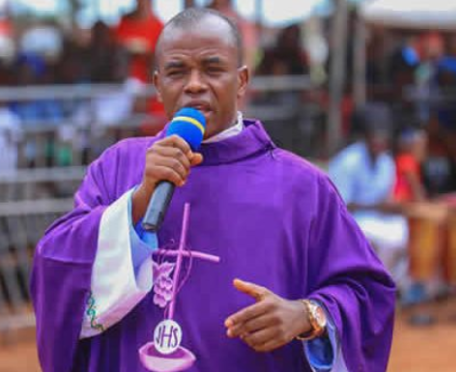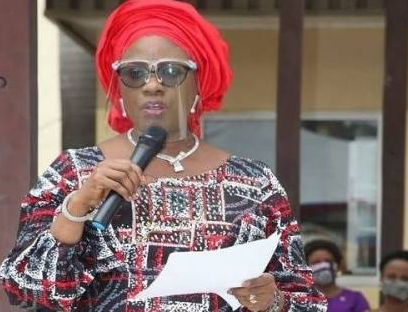Judicial Financial Autonomy –A Way Forward For The Administration of Justice in Nigeria(1)

By Ebun-Olu Adegboruwa, SAN
The Nigerian Bar Association, Gwagwalada Branch held a Webinar to deliberate on the above topic, with participants drawn from across the nation. I was privileged to present a paper at the said Webinar, the highlights of which I now share with you all.
INTRODUCTION
Our nation seems to be at the crossroads presently and this topic could not have come at a better time than now, when the entire system of justice administration has been thrown into an unnecessary comma, due to the ongoing nationwide strike embarked upon by judiciary staff workers.
SALUTE TO COURAGE OF JUSUN
I must hasten to salute the courage and determination of JUSUN members, for sustaining the strike action since April 6, 2021, till now. The fact that the government is not working to resolve the issues raised shows the level of decay that permeates our governance structure. Or else, how do you have the entire courts locked up for close to a month and our leaders are not moved?
NO WITCH-HUNT OR VICTIMIZATION OF JUSUN MEMBERS
The freedom of association is guaranteed under section 40 of the Constitution to the extent that citizens, including workers, are free to assemble for the protection of their interests, as has been done by JUSUN and other unions. It has been noted however that some state governments have attempted to decimate the rank of JUSUN in order to abort the strike through discordant voices of disunity and sabotage. This has been resisted firmly by JUSUN at the national level and it is commendable. I urge all lawyers, especially the Nigerian Bar Association, to work closely with JUSUN to ensure that no member of the union is subjected to any form of intimidation, witch-hunting or vicitimisation, on account of heeding the call of JUSUN for this all-important strike action. The global standard must be maintained, as obtained in industrial relations, that no unionist should suffer persecution as a result of any industrial strike action.
This is not to discountenance the view that lawyers are the ones bearing the brunt of the strike action, but it is a sacrifice that we must make for the future of justice administration in our country. In the golden words of the first indigenous Nigerian lawyer, Christopher Alexander Sapara Williams, “the legal practitioner lives for the direction of his people and the advancement of the cause of his country.” Since the Motto of the NBA is to promote the rule of law, the strike action embarked upon by JUSUN is a struggle we must all identify with.
WHAT IS JUDICIAL AUTONOMY?
‘Judicial’ and ‘Judiciary’ are words associated with the system of justice administration as administered by the judge presiding over a court, otherwise referred to as a ‘judicial officer’. Thus, the learned authors of Black’s Law Dictionary defined the term ‘judicial’ as ‘relating to, or by the court’, while it is further stated therein that the ‘judicial branch’ is the branch of government consisting of the courts, whose function is to interprete, apply, and generally administer and enforce the laws. This is also known as the ‘judiciary’, which is a system of courts or a body of judges, oftentimes referred to as the ‘judicature’. This branch of government is provided for in measured details, in section 6 of the Constitution.
In the words of the learned authors of Merriam-Webster Dictionary, ‘autonomy’ is the ‘quality or state of being self-governing; self-directing …’. It connotes independence. Black’s Law Dictionary states clearly that autonomy is ‘the right of self-government.’ This makes more meaning in a legal gathering, as autonomy should be enforceable as a right, particularly when it has to do with the judicial arm of government, which is deliberately set up to administer and enforce laws. It will therefore be an anathema to have a judiciary that is caged or held in bondage or servitude, as it will be unable to dispense justice or protect the rights of the people. It is in this regard that all people of conscience demand that the judiciary should be independent from the other branches of government and that our courts (and their decisions) should not be subject to improper influence from the other branches of government or from private or partisan interests. The two basic tenets of judicial independence are that the judiciary should be free in the security of tenure of office and the discharge of judicial functions and it should also be in control of its own funds.
WHY JUDICIAL AUTONOMY?
The history of the Court system in Nigeria deserves some x-ray, in order to better appreciate the current clamour for judicial autonomy. The Courts are meant to protect the weak and vulnerable in the society. This was why in the early 1950s, ethnic minorities voiced out their concerns and fears, with the obvious imbalances in the way the Regions were being governed. They argued that with the exodus of foreign officers upon independence, the tendency would be for the majority ethnic groups to use their population and influence to dominate important organs of government such as the judiciary, the police and the public service, to the disadvantage of the minorities. This eventually led to the establishment of a Commission headed by Sir Henry Willink, which submitted its report in 1957, ahead of the proposed independence for Nigeria. The contents of the Willink Commission Report are best described as true restructuring, as it focused on an independent judiciary as a veritable weapon of checkmating all forms of impunity. The issues raised then are still largely the same issues being raised by the proponents of restructuring, even as of today.
The agitation for true federalism, resource control and equitable distribution of resources has been on for many decades and it was the bedrock of the lucid campaigns by Chief Obafemi Awolowo, Isaac Adaka Boro, Ken Saro Wiwa, Chief Odumegwu Ojukwu and a host of other nationalists. The WIllink Commission Report led to the inclusion of a separate chapter in the Nigerian Constitution for the protection of fundamental rights, given the predominance of the majority ethnic groups, who would certainly deploy their population during elections, to perpetuate themselves in power, almost forever. And it is the judiciary that is solely responsible for piloting the enforcement of these rights. Without independence and financial autonomy, the deprivations that led to the establishment of the judiciary, will continue to stare us in our faces.
Which is why many decades after the Willink Commission Report, the agitations have continued and escalated, even with more energy, largely because the problems have remained and hence the JUSUN strike action. The gains of the Willink Commission Report were rudely reversed by the various military regimes which forced themselves upon Nigeria. They virtually destroyed the various organs of state, bastardized all democratic norms and entrenched a unitary system of government that took us back many decades. They centralized the judiciary and put it directly under the control of the executive arm of government by making the latter the approving authority for all funds accruing to the former. This is why the judiciary must be independent, mainly to assert its powers under the Constitution in order to be better placed to offer succour to all those seeking justice.
JUDICIAL FINANCIAL AUTONOMY AS DECLARED BY THE COURTS
The current strike action by JUSUN started on April 6, 2021, after the expiration of the fourteen day notice given to the Nigerian government. It is almost a month now, that state judicial and legislative workers have been protesting the refusal of governors to implement the constitutional provisions on financial autonomy. This is not the first time JUSUN will call out its members to demand financial autonomy for the judiciary. In 2015, JUSUN embarked upon a strike action as a means of enforcing judgments delivered by various courts affirming financial autonomy for the judiciary, both at the federal and state levels.
These three cases are the ones filed by JUSUN against the governors of the 36 States, in Suit No. FHC/ABJ/CS/667/13 and the two filed by a former President of the Nigerian Bar Association (NBA), Olisa Agbakoba, SAN, in Suit No. FHC/ABJ/CS/63/2013 and Suit No. NAD/56/2013. JUSUN called off the 2015 strike action, following the intervention of well-meaning Nigerians, who assured of a viable solution.
In a judgment on January 13, 2014, in the suit by JUSUN, the Federal High Court in Abuja (Ademola, J) held as follows:
(i) that the provisions of sections 83 (1), 121 (3) and 162 (9) of the Constitution are clear and straightforward and should therefore be complied with. The judge said: “The Attorney General of the Federation and the states should act responsibly and promptly to avoid a constitutional crisis in this country, by ensuring financial autonomy for the judiciary.”
(ii) that the piecemeal allocation of funds, through the states’ Ministries of Finance to the judiciary, at the pleasure of the executive, is unconstitutional, un-procedural, cumbersome, null, void, and should be abated forthwith.
(iii) that having regard to the provisions of sections 81 (3), 121 (3) and 162 (9) of the Constitution “funds/amount standing to the credit of the judiciary in the Federation Account/Consolidated Revenue Fund shall be paid directly to the heads of courts concerned.
Although different views have been expressed concerning the proper interpretation of sections 83, 84, 121 (3) and 162 (9) of the Constitution as to whether they truly grant financial autonomy for the judiciary, it is sufficient that these constitutional provisions have been interpreted by the Courts. We cannot in our different offices and locations sit on appeal over valid and subsisting judgments of courts of competent jurisdiction, but rather to obey and give effect to them. This is why JUSUN is on strike, and why we must all unite to appeal to those concerned, in this case the governors, to join us to obey the judgments, in order to achieve effective administration of justice. The sad experience of most Nigerian litigants and judgment creditors is that it is very difficult if not impossible to enforce judgments against the executive arm of government in Nigeria, given the fact that the said arm also includes the police and other law enforcement agencies.




















